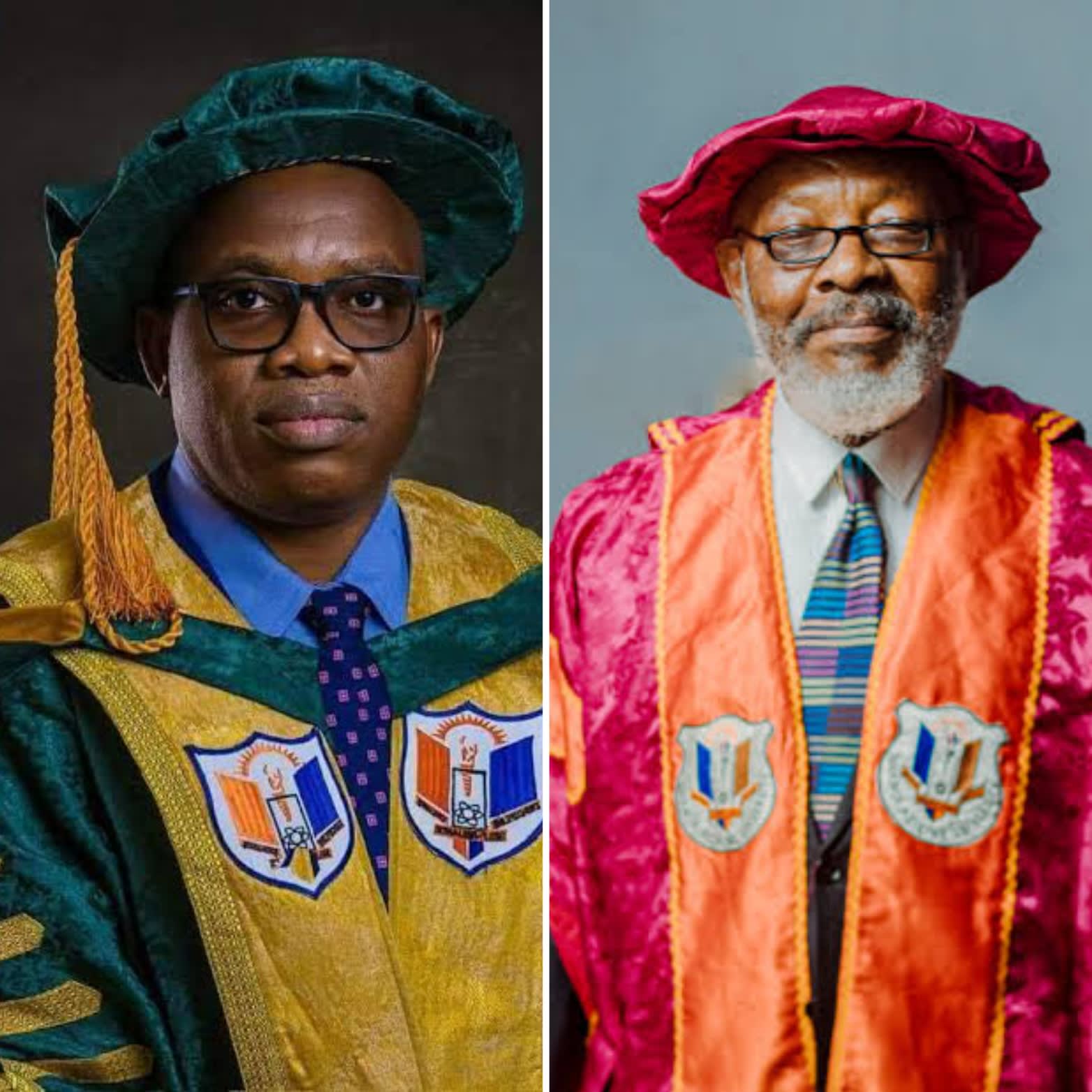
Professor Bernard Ifeanyi Odoh: Can We Trust The Process?
Nnamdi Azikiwe University would have been my alma mata; in 2004 traversing from temp site to perm site, I almost fell in love with the capital of Anambra.
The latest stories on Professor Bernard Ifeanyi Odoh; the embattled Vice-Chancellor of Nnamdi Azikiwe University (UNIZIK) has put this great citadel in the spotlight and sparked significant debate, with claims of procedural violations dominating public discourse.
However, there is evidence from credible sources suggesting that his emergence as Vice-Chancellor adhered to due process under the law, and the subsequent claims of his illegitimacy appear to lack substantiation. Stay with me!
The Appointment Process
It is reported Professor Odoh was appointed following a rigorous process overseen by the university’s Governing Council. According to reports, the council meticulously adhered to the statutory requirements outlined in the Nnamdi Azikiwe University Act. This process included thorough assessments of candidates by representatives of relevant authorities, ensuring compliance with the principles of the Universities Autonomy Act of 2007. This act grants university councils the autonomy to appoint Vice-Chancellors without undue interference from external bodies, including the Federal Ministry of Education.
UNIZIK's Registrar, R.I. Nwokike, confirmed that Odoh’s selection followed these statutory guidelines, with representatives present to guarantee transparency. Furthermore, his professorial status—a key qualification for the role—was affirmed, contrary to claims challenging his credentials.
Challenges to the Dismissal
The reported removal of the geophysicist raises serious questions. The announcement came via a press statement, citing "illegalities" in his appointment.
However, the Ebonyi gubernatorial candidate argued that such a dismissal bypassed established protocols under the University Act of 2007.
Specifically, the act mandates that a Vice-Chancellor’s removal requires the governing council to convene a committee to investigate allegations, followed by recommendations to the university’s Visitor (the President). This procedure was reportedly not observed.
Odoh has pointed out that the allegations against him remain unproven in court, with ongoing cases before the Federal High Court and the National Industrial Court. He said maintains that his dismissal was premature and procedurally flawed, undermining the autonomy of the institution; citing political and ethnic undertones.
The Need for Institutional Autonomy
This situation has necessitated the need to revisit the issue of University autonomy underscoring the importance of respecting it; as enshrined in Nigerian law. The interference by external entities risks politicizing our academic institutions, eroding their independence; setting a dangerous precedent.
Chairman of the governing council of NAU, Amb Greg Ozumba Mbadiwe even deserves an apology for the denigration of his hard earned reputation by the Minister of Education and the cohorts who have taken the laws Into the hands and taken us back into the uniform and sword era where impunity reigned supreme.
Amb Mbadiwe who stated at a press conference in Owerri, the capital of Imo State, on Tuesday, that the recent events—particularly the declaration of illegality concerning the properly constituted Committees of the Council tasked with selecting the Vice-Chancellor and Registrar, which strictly adhered to the provisions of the Nnamdi Azikiwe (Miscellaneous Provisions) Act 2012 as amended and the abrupt dissolution of the University Council by the Ministry of Education has compelled him to speak out, which he noted had become necessary to save his hard-earned reputation.
Recall that Mbadiwe has served the nation diligently in many position including as a Member of the National Political Reform Conference, Ambassador to the Republic of Congo, Board Member, Federal Road Safety Corps (FRSC), Chairman of the Board, Federal Road Safety Corps (FRSC), Chairman of the Board, National Bureau of Statistics (NBS).
Amb. Greg has written extensively on socio-political issues and he is the author of the authoritative book. "Nigeria's Foreign Relations in the Obasanjo/Atiku Years - A Pictorial.”
Hence, the University council if duly constituted and agreed to appoint Odoh exercised its lawful mandate, and any disputes should have been resolved through the prescribed legal mechanisms.
The controversy surrounding Professor Odoh’s removal cum reported dissolution of the governing council also highlights the need for adherence to due process in the administration of public institutions. While allegations of impropriety must be investigated, they should not be used as pretexts for circumventing legal frameworks. Upholding the integrity of the appointment process is vital for preserving the credibility and autonomy of Nigeria’s educational institutions.
If Professor Odoh’s appointment did not comply with the law; emerging from a contest with 18 other candidates, challenges to his position should be addressed through established legal and institutional channels, not unilateral actions.
By following due process, Nigeria can foster stronger governance and trust in its academic systems.
He that has ears…let him hear
Concerned citizens in the Diaspora.

